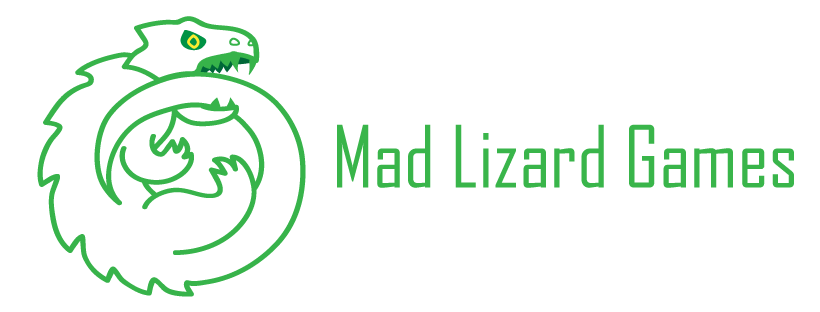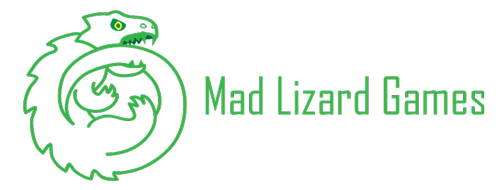
Attributes in Shards of Gods
Hey guys,
Now that you have had the opportunity to read about how skill-checks work in SoG, today we would like to talk in more detail about the attributes used in the game and what they represent.
Every character or NPC in Shards of Gods has the same set of attributes, which can differ greatly in strength and therefore strongly influence the individual play style. When a character or NPC performs an action within a certain area of activity, a test for the corresponding attribute is required (the possible exception being checks which are free to choose)
The value of an attribute indicates how competent a character is in performing actions from the corresponding field of activity.
These attributes are as follows:
Physical strength
This attribute describes a creature’s physical strength and muscular power, i.e. their ability to perform physical tasks based on pure, raw strength.
Physical strength is relevant, for example, when it comes to lifting or moving objects, smashing something or in relation to a direct test of strength such as arm wrestling or close combat situations.
Example:
A player wants his character to pull down a stuck lever in an ancient temple with brute strength. He passes the physical strength check and, thanks to his strength, manages to activate the rusty mechanism despite everything.
Dexterity
Dexterity refers to a creature’s body control. This attribute describes how skillfully it can use its hands and the rest of its body and reflects its ability to perform precise, dexterous movements.
Dexterity is relevant when it comes to activities such as climbing, quietly opening locks, sneaking and generally all kinds of fine and precise movement.
Example:
A player wants his character to open a door lock using a hairpin. Although the character has the necessary theoretical knowledge, he is more of a thinker and generally rather clumsy. He rolls a skill test. He fails this, which means that the character is unable to open the door using his dexterity.
Constitution
Constitution describes the physical robustness of a creature as well as their resilience and performance. Constitution results from the combination of its ancestry and previous lifestyle.
Constitution is relevant when it comes to activities such as resisting effects (poison, diseases, physical displacement, etc.), blocking attacks or in terms of endurance for long-term efforts.
Example:
A player wants his character to take part in a race. The character has a good level of physical fitness, which is reflected in his Constitution value. He rolls a test for constitution, which he passes. Accordingly, he completes the race without too much difficulty and successfully reaches the finish line.
Perception
Perception refers to how keen a creature’s senses are. A well-developed perception makes it easier for them to handle ranged weapons, to be aware of their surroundings and to detect threats and details.
Perception plays a decisive role in the use of one’s own senses (hearing, sight, taste, smell and touch) and can vary again due to the influence of certain abilities. The Shin, for example, have an excellent sense of smell. If a character who belongs to the Shin wants to check something by smelling, he would use a better Perception value than if he wanted to listen, for example.
Example:
A player wants to eavesdrop on a conversation through a closed door. He rolls a test for perception and does not pass. Despite his efforts, the character is unable to understand what is being said in the other room.
Charisma
Charisma indicates how eloquent a character is and how convincing they are to others. The Charisma score usually directly reflects how easy or difficult it will be for them to carry out social interactions with other individuals.
Charisma is relevant for rhetoric, manipulation, lying, negotiation skills and for general charisma and personal appearance.
Example:
A player wants to persuade a guard to clear the way for him by flattering his character. He rolls a test for Charisma. He fails and his compliments seem to have no effect.
Knowledge
Knowledge refers to the totality of all knowledge and skills acquired by a being. This knowledge can come from books as well as from personal experience and can have both an academic/theoretical and a practical character.
Knowledge is relevant when it comes to remembering facts about a learned topic. It also plays a role when comparing old information with new findings. In addition, knowledge is important in the context of using magic.
Example:
A player wants his character to translate an ancient language in a book he has found. The character has studied similar languages and could therefore have the necessary knowledge. He rolls a test for knowledge. He passes and is therefore able to translate the book.
Intelligence
Intelligence describes the mental ability of a being to understand complex issues. A higher intelligence enables a better and faster analysis of situations and the development of solutions.
Intelligence is relevant when solving problems, understanding facts, seeing through the intentions of others, deciphering puzzles and working magic.
Example:
A player wants his character to check a gang leader’s negotiation offer for double statements and hidden motives. He rolls an Intelligence check, passes it and, by quickly analyzing the statements, realizes that he is being presented with a cleverly disguised offer that is disadvantageous to the group.
Willpower
Willpower describes the mental strength, discipline and psychological stability of a being. This attribute is used in situations in which characters/NPCs can rely solely on their will, but not on learned physical abilities.
Willpower is relevant when it comes to whether a character is strong enough to resist certain temptations or mental attacks, to push themselves to peak performance through their willpower or to use willpower-based abilities and spells.
Example:
A player wants their character to refuse an immoral offer. Due to the character’s background story, this offer is usually too tempting to simply refuse. A test of willpower is therefore rolled. The test fails, so the character is seduced and accepts the offer.
We hope you now have a better idea of what you can do with your character’s attributes. And who knows, maybe you’ve already got a few good ideas 😉
See you next time!
Fabian







